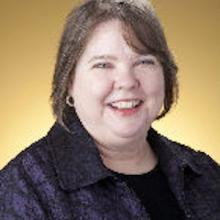Innovations in Student Success through Master Courses: Quality, Consistency, and Efficiency
Concurrent Session 5



Brief Abstract
With growing online offerings, institutions are attempting to bolster student success through master courses. What are faculty perceptions of master courses? Can they be used to enhance student success and how? We will share our survey on faculty perceptions and facilitate a conversation about master course adoption and use.
Presenters



Extended Abstract
Innovations in Student Success through Master Courses: Quality, Consistency, and Efficiency
Background/Context:
With the growth of online teaching, it is no surprise that master courses (also known as template courses, master shells, model/primary courses) are enjoying increased attention. Master courses are defined in this presentation as course shells for a particular course that include everything that course needs to be ready to run—all the assigned instructor has to do is add his/her/their contact information. In some cases, the assigned instructor also has to update the due dates in the course shell. In other cases, instructional designers are assigned to carry out that task before the master course is duplicated and assigned to faculty (Darr 1). The studies regarding master courses are generally positive and recommend the practice.
As Darr explains, with master courses, “the integrity of any given course—its instructional outcomes, materials, activities and assessments—is maintained from one offering to the next and revisions are made through collaboration with the course design team” (1). Franetovic and Bush go even further with their recommendations for best practices concerning master course shells. At Lawrence Technological University, “all [m]aster courses were redesigned to fit the [m]aster [c]ourse [s]hell, which included other standard components such as a syllabus template, an orientation module, and uniformity within the weekly look and feel of modules” (1). These courses were also reviewed to make sure the course content was in alignment. During delivery, course audits were performed three times during semester to assess quality, and the “content and delivery were reevaluated toward the end of each semester” (1). Lawrence Technological University faculty were extremely satisfied with the process (4). Researchers put forth that the master course shell program at LTU “allowed faculty to focus more on teaching” (2).
Rebecca Graetz defines the master course differently. Addressing the situation at her institution where 12 different sections of the same course are taught in 12 different ways, she posits that this variety “hinders students” (1). To provide a consistent experience for students across all sections of a course, she recommends “[f]aculty in a program or who teach the same course get together and design a [m]aster [c]ourse [s]hell that everyone agrees on . . . . They may take out an assignment or two or add a discussion or rubric, but the textbook is the same and students across programs get a similar experience” (1). Graetz’ strategy is sound until a faculty member decides to “fix” a course by stripping it down to bare bones without pedagogical reasoning or alignment to objectives. It may be that more explanation of design rationale and facilitation requirements, along with greater oversight, is needed.
Voicing a dissenting view, Penelope Adams Moon believes the master course idea degrades instructors and students. She recommends instead that “a community of faculty collaborate to build an online course” (2). In this way, the community can promote “intellectual and pedagogical growth and produce richer experiences for online students” (2). In the end, Moon believes community-built courses allow “instructors to use their time more effectively, avoid pedagogical pitfalls and reduce the number of panicked emails they send to instructional designers” (4).
This Session:
The literature review reveals a wide variety of perceptions regarding master courses, a variety the presenters are familiar with from our work with faculty in our colleges. The purpose of this presentation is to share our findings from a university-wide survey about faculty perceptions of master courses and engage in a discussion around the use, benefits, and challenges of using master courses. Additionally, we will share our approaches and strategies used to encourage faculty to embrace, develop, and maintain master courses. We will also visit the challenges in accomplishing this goal, including concerns about academic freedom and integrity of workforce, and increased workload without compensation.
Session Outline:
Introductions
Slido: 1) Have you ever facilitated/taught a master course?
2) Have you ever built a master course?
3) What words come to mind when you hear “master course.”
Background & Findings
-
Share faculty and administration’s pre-conceived notions about master courses.
-
Summarize our current strategies/approaches towards encouraging creation and use of master courses.
-
Report results of our university-wide survey of faculty and department chairs concerning perceptions of master course creation and adoption.
Breakout Groups:
-
To what extent are master courses used on your campus?
-
How might you encourage creation and use of master courses?
-
What are the challenges encountered in implementing master courses and how do you overcome them?
Share
Each breakout group will share the top ideas from their group. We will tweet our findings to the conference attendees.
Slido:
1) After this session, have your perceptions of master courses changed in a positive or negative light or remain the same?
2) Would you ever teach a master course if other options were available?
Works Cited
Darr, Kent. “Why Use Master Shells to Manage Online Courses.” Course Design.
Arizona State University. February 23, 2018. pp. 1-9. https://teachonline.asu.edu/2018/02/use-master-shells-manage-online-cour...
Franetovic, Marija and Richard Bush. “Master Course Shell Practice: Redesign of Institution Online Course Look and Feel, Alignment of Core Course Content and Delivery, and Quality Improvement.” Online Learning Consortium Effective Practice Summary. https://secure.onlinelearningconsortium.org/effective_practices/master-c... practice-redesign-institutional-online-course-look-and-feel-
#:~:text=The%20Master%20Course%20Shell%20Practice%20included%20redesign%20by,courses%20were%20pushed%20to%20active%20courses%20by%20IT.
Graetz, Rebecca. “Why online faculty should use a Master Course Shell.” eCampus News. March 25, 2019. https://www.ecampusnews.com/2019/03/25/online-faculty-use-
master-course-shell
Moon, Penelope Adams. “We can do better than the master model of online course development. Let’s build courses together.” (opinion) Inside Higher Ed. March 27, 2019.
https://www.insidehighered.com/digital-learning/views/2019/03/27/we-can-...



